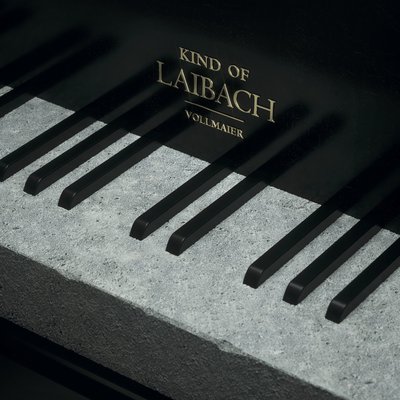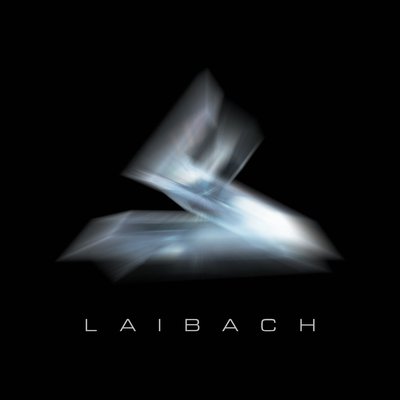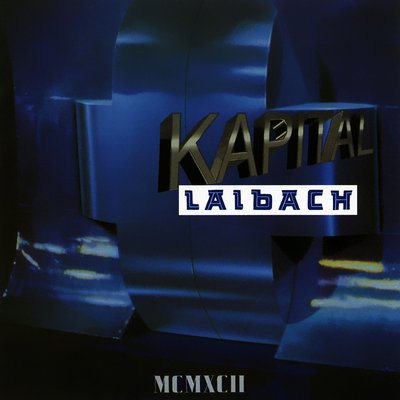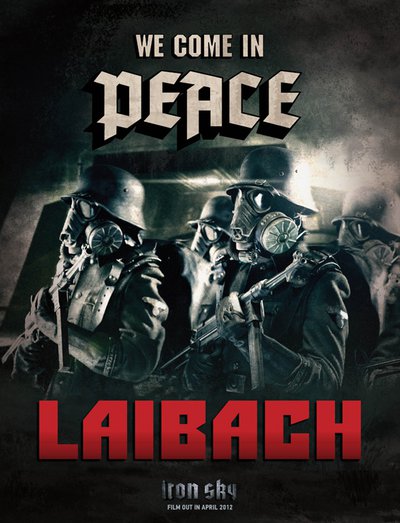Laibach has released a remastered and redesigned version of their 1987 album Opus Dei. The cover art has been refined from the original design, and the release also includes a 16-page booklet featuring photos and new sleeve notes by cultural theorist and author Alexei Monroe.
Haris Hararis has conducted a comprehensive interview with Alexei Monroe to uncover fresh perspectives and allusions in Laibach’s work and discuss their axes’ enduring sharpness.

 Laibach: Opus Dei (Remastered & Redesigned)
Laibach: Opus Dei (Remastered & Redesigned)
HH: It has been four decades since Opus Dei was released, yet we are still discussing and analysing it. Each album by Laibach holds its value, but Opus Dei stands out. Besides being the starting point for a broader audience to get to know Laibach, what other factors contribute to its standout status?
AM: Perhaps it’s that Laibach in both its most concentrated and most user-friendly form: a total package that maintains the tension between uncompromising ideas and a mass, pop(ulist) appeal. Neither side of the equation was diluted. It was a perfectly timed symbolic apparition in the mediascape of 1987, haunting and inspiring many.
It’s also worth remembering that although it was a huge success, it alienated some existing Laibach followers, just as other releases have in the decades since. This is an inevitable part of the Laibachian process.
HH: The music we listened to in our youth often evoked strong emotions and musical nostalgia. It provides a window into a time when we experienced music with all our senses and were discovering the world around us. For many of us, these experiences profoundly influenced our lives. How did your encounter with Laibach impact your taste in music or your life?
AM: Musically, it was another step on a journey I’d already begun – following increasingly radical groups associated with the industrial scene. Opus Dei drew me in, but it was working through the back catalogue subsequently that sealed my fate as what Xavier Kruth recently called a “Laibachologist”. Exposure to Rekapitulacija deepened the fascination further and seeing the London concert of the Kapital tour and buying the NSK monograph were decisive. There’s a direct line from my exposure to Opus Dei to my decision to study in Slovenia and to attempt to penetrate the mysteries of its language, culture and history (which in the early 1990s were barely discussed in English). Without undertaking this journey, my life would have been quite different – I’d have lived in different countries, met different people, and followed different paths. It’s hard to imagine though.
Not everyone enjoys the bittersweet pain of knowledge
HH: Many of us were introduced to Laibach, not just through their music. As you mentioned in your message, you were already impressed by them after reading an interview and seeing a photograph of the group. This makes me think about the importance of Laibach’s ideas in their work. Can their music stand alone without these ideas, or are these ideas necessary to complement their musical creations?
AM: The ideas shape and inform the music and I believe some knowledge of these adds to the appreciation of the music. Yet this is not something that people necessarily welcome. The response to Uwe Schütte’s Kraftwerk book among some fans is a good example of this. It’s ironic that people would object to a serious, intellectual discussion of the work of a highly cultured group. This is even more so in the case of Laibach, the work of which is full of countless allusions to and quotations from literature, poetry, film, philosophy, history and more. Still, this doesn’t mean that there’s anything wrong with a direct enjoyment of the music and this is certainly possible. In Laibach’s words “the explanation is the whip and you bleed” and not everyone enjoys the bittersweet pain of knowledge. My observations and analysis are there for those who want them but skipping them is also a valid choice. Laibach’s music is always partly conceptual and partly musical, with the proportion constantly shifting, not just from album to album, but even track to track. Albums like Laibachkunstderfuge BWV 1080 are primarily (but never exclusively) musical, whereas I see The Sound Of Music as primarily conceptual. I have certainly met people in art and intellectual contexts who relate primarily to the ideas and are sometimes embarrassed by Laibach’s music (or at least embarrassed to be seen [and heard] to like it too directly. I was first drawn in by the ideas but can certainly relate directly and intensely to the music.

 Laibach, Opus Dei, Booklet cover collage, 2024
Laibach, Opus Dei, Booklet cover collage, 2024
HH: In your sleeve notes, you discussed the original cover of Opus Dei at length. I would like to know your thoughts on the new version. I appreciate a fresh perspective on older artworks, especially when the original artist is involved. However, I have a question regarding the changes to the new version. For example, you mentioned the letter "b" in the design of "Laibach" on the cover. Please elaborate on any other missing elements or features you have noticed and would like to comment on.
AM: Obviously, there’s the new Opus Dei logo used to promote the tour, which meets the symbolic needs of the first Tik-Tok generation. Laibach always strives to adapt to the zeitgeist and these are more colourful and more totalitarian times than 1987. The colour scheme used for the tour visuals – deliberately I think – departs from the strict monochromatic scheme of the original. An effective re-release can’t be just for the “old guard” who want to indulge in nostalgia. After all, Opus Dei always needs to find new converts and followers.
In relation to the letter “b” and the lettering in general, what strikes me is that the shadows have been banished: the font is similar to the original, but without shading or shadow and perhaps this is appropriate to the present era and its distaste for ambiguity. On the other hand, the blood still drips from Heartfield’s infamous axes and the new metallic shading used on the cover and on the disc labels is eye-catching. Overall, I would say this is one of the more successful updates of Laibach’s 1980s aesthetics. It will be interesting to see if the only slightly modified symbolism of the album generates any of the controversies that the original did, especially in Germany, and whether the axes still have sharp edges that might draw blood from the media, retailers or buyers. The present cultural and political atmosphere is infinitely more volatile than that in 1987 and totalitarian sentiments are expressed more boldly and without shame. In this climate, the return of Opus Dei may well be triggering. Perhaps it’s even a harbinger of Apocalypse.
Even the monumental retroavantgarde sometimes needs an injection of the new
HH: Reading your text, I discovered new elements in Laibach’s work that I had not previously encountered, despite thinking I had thoroughly explored their ideas and references. Are you also still uncovering new layers in their work?
AM: When I was writing the sleeve notes I returned to the source, deliberately returning to my archive of Laibach press articles. Re-reading these after many years certainly gave me new ideas and associations. There are so many ideas and references strewn throughout Laibach’s work that there’s always the possibility of surprise, or of suddenly making sense of what seemed like a random detail when re-encountering it decades later. For me it’s essential to continue to unearth new elements rather than simply repeating what’s already known. Of course I’d already written about Opus Dei, but I hadn’t thought about it for a long time (in this sense I’m a bad fan in that I’m not constantly listening to or thinking in depth about the work). Yet this means that when I do return to it, I can perceive and need to find the new in it … and even the monumental retroavantgarde sometimes needs an injection of the new.
HH: Would you like to share any additional comments or information about Opus Dei that wasn’t included in the sleeve notes you wrote?
AM: Perhaps after the tour or for the next re-release … “if man is still alive”.







